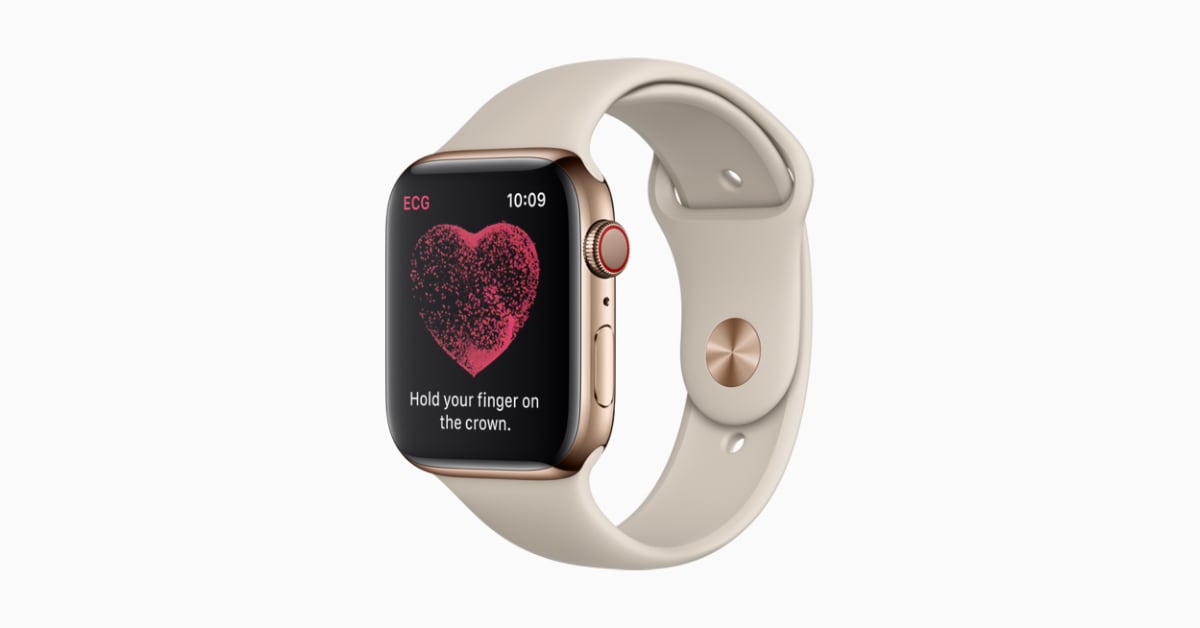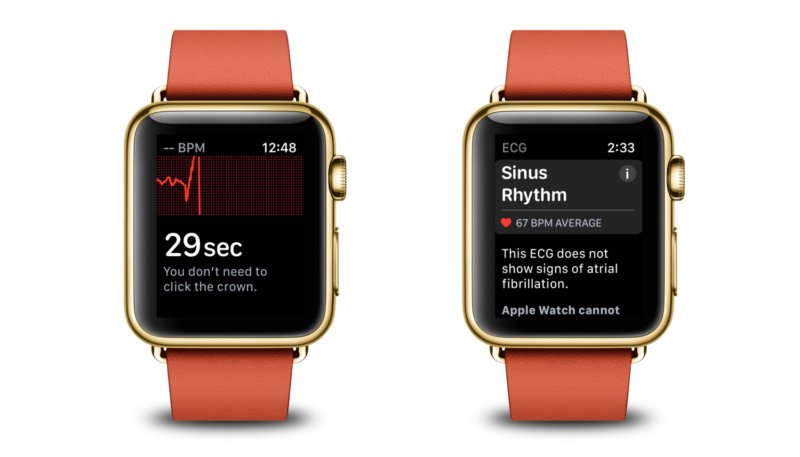A new Stanford study by the American Heart Association Journal found that Apple Watch can detect arrhythmias other than Atrial Fibrillation (AFib) because of the positive predictive value of 0.84 of its irregular pulse detection algorithm. Heart arrhythmias or heart rhythm problems affect the electrical impulses that coordinate heartbeats and cause the heart to beat too slow, fast, or irregularly.
The ECG (electrocardiogram) feature, with the ECG app on Apple Watch Series 4 and later, records users’ heartbeat and rhythm and then checks the recording for atrial fibrillation (AFib) for users 22 years and older. If any abnormality is found, the user is notified via an alert on the Apple Watch that “your heart has shown signs of an irregular rhythm suggestive of atrial fibrillation. If you have not been diagnosed with AFib by a physician, you should talk to your doctor.” This feature has saved many lives.

Apple Watch has the ability to detect more forms of heart arrhythmias
The new Apple Heart Study investigated a smartwatch-based irregular pulse notification algorithm to identify AFib and compared it to the ambulatory ECG patch, after recording irregular pulse notification. Researchers used Apple Watch to detect forms of heart arrhythmias. MyHealthyApple reports that;
Among 419,297 participants enrolled in the Apple Heart Study, 450 participant ECG patches were analyzed, with no AF on 297 ECG patches (66%). Non-AF arrhythmias (excluding supraventricular tachycardias <30 beats and pauses <3 seconds) were detected in 119 participants (40.1%) with ECG patches without AFib. 76 participants (30.5%) reported subsequent AF diagnoses.
In participants with an irregular pulse notification on the Apple Watch and no AF observed on ECG patch, atrial and ventricular arrhythmias, primarily PACs and PVCs, the study detected symptoms in 40% of participants.

The study concludes that Apple Watch can detect more forms of heart arrhythmias other than AFib. However, it is also recorded that the smartwatch’s AFib feature is for people with undiagnosed AFib, not diagnosed AFib.
Stanford study suggest that defining optimal care for patients with detection of incidental arrhythmias other than AFib is important.
Apple Watch’s ability to detect arrhythmias is gaining attention as new research evaluates other uses cases.
One important note, at this time the irregular heartbeat notification is meant for people NOT currently diagnosed with AFib. That’s because the Apple Watch only occasionally looks at a user’s heartbeat to check for an irregular rhythm. Since the Apple Watch is not constantly looking for AFib, it does not detect all instances of AFib.
Apple is expected to introduce even more important non-invasive health features in the next-generation Apple Watch series like blood glucose level, blood pressure, alcohol, body temperature, body hydration, lactate, and more. Reportedly, the new features will be powered by Rockley Photonics’ new full-stack, “clinic-on-the-wrist” digital health sensor system for wearable devices.


